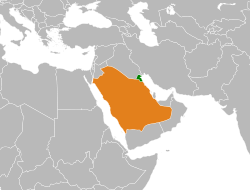
The agreement is poised to facilitate greater economic synergy by addressing critical tax barriers that often hinder cross-border investments. It focuses on creating an equitable investment environment, ensuring that businesses operating in both countries are not subjected to duplicate tax obligations. This measure is expected to encourage inflows of capital, fostering a more dynamic business ecosystem in the Gulf Cooperation Council (GCC) region.
Saudi Arabia has been actively pursuing tax reforms and partnerships to align with its Vision 2030 strategy, which aims to diversify the economy beyond oil dependency. By establishing agreements like the one with Kuwait, the Kingdom seeks to enhance its attractiveness to foreign and regional investors. Kuwait, with its robust financial sector, is seen as a vital partner in this endeavor, and the newly signed deal reflects mutual recognition of economic opportunities that such cooperation presents.
The conference where the agreement was signed served as a platform for key stakeholders in the region to discuss evolving tax policies, digital transformation in customs operations, and innovative fiscal management strategies. Both Al Jadaan and Al Fassam emphasized the importance of leveraging such dialogues to foster sustainable economic growth while maintaining fiscal fairness and transparency.
This pact is part of broader efforts within the GCC to harmonize taxation policies among member states. Such initiatives aim to reduce bureaucratic hurdles and ensure that businesses can operate seamlessly across borders. Analysts view the agreement as a proactive step towards economic resilience and regional integration, particularly in light of global economic uncertainties.
While details of the agreement’s implementation timeline remain under discussion, its announcement has been positively received by the business communities in both nations. The deal is expected to particularly benefit sectors such as finance, real estate, and technology, which are heavily reliant on cross-border collaborations. Experts suggest that these industries will now have greater clarity and predictability in their tax obligations, enabling long-term planning and investment.
The agreement is also a testament to Saudi Arabia's growing influence in shaping economic policies within the GCC. By spearheading initiatives that prioritize investment-friendly regulations, the Kingdom reinforces its role as a leader in regional economic transformation. Kuwait's active participation highlights its strategic interest in aligning with regional economic trends, ensuring its competitiveness in attracting and sustaining investments.
Topics
Spotlight
